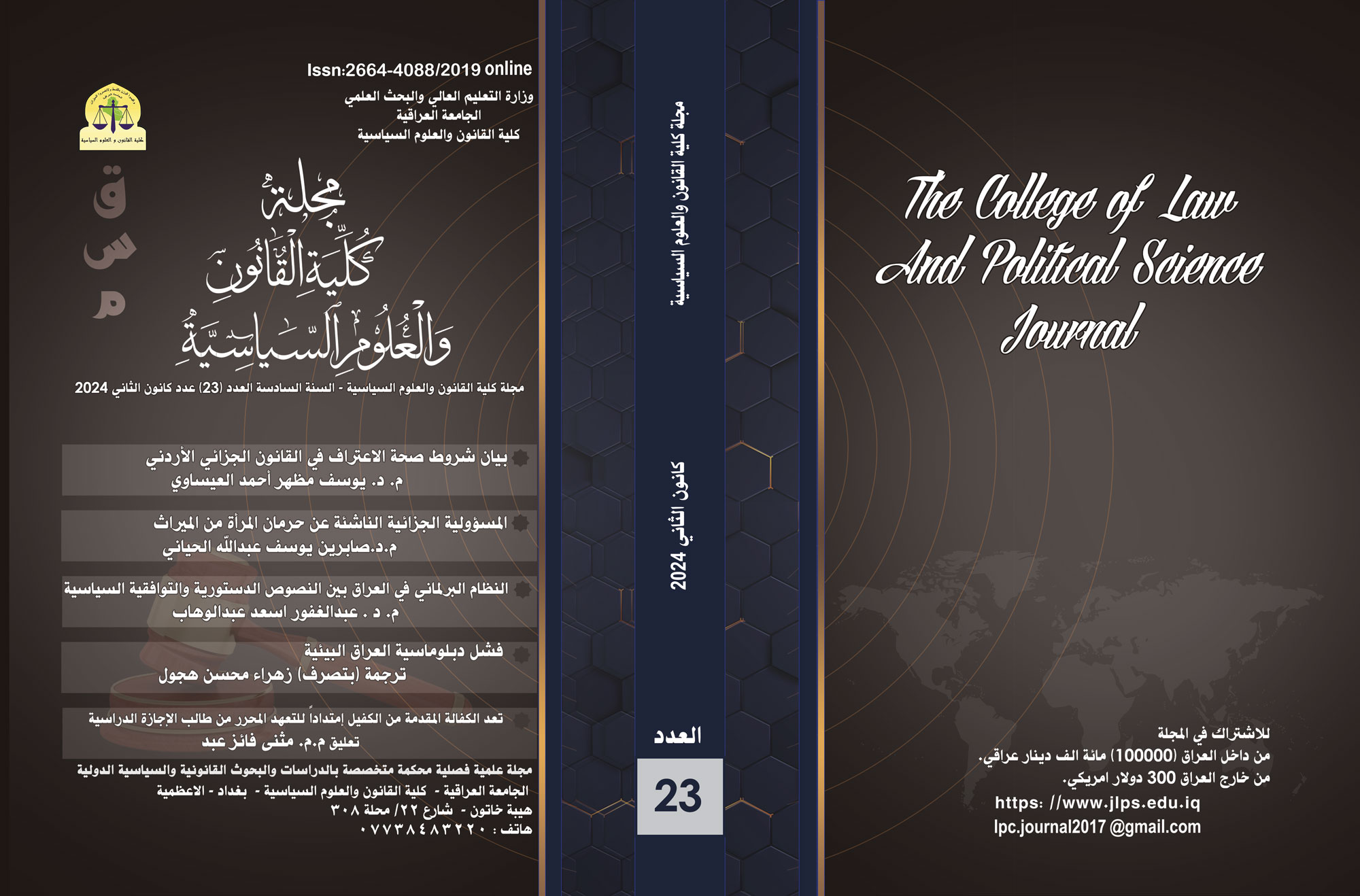Constitutional regulation of the status of religion in the state a comparative study
DOI:
https://doi.org/10.61279/86956302Keywords:
Iraqi Law, Iraqi ConstitutionAbstract
The constitution is considered the supreme law of the state. It regulates the actions of its authorities and at the same time expresses the political philosophy of its drafters and the society that votes to accept it. As such, the constitution’s inclusion of texts related to religion had a role in determining how it is viewed. Western countries have, generally speaking, staked their positions in regard to religion. Islamic countries, on the other hand, have always debated and discussed this controversial point – specifically, whether Islam is the religion of the state and the source of its laws and legislation. If that is the case, then both types of texts [legal and religious] have legal effects that result from it. In the case of the Republic of Iraq, due to the recent writing of its constitution, these texts have been the subject of societal debate regarding whether it creates a religious state or not. This study is meant to highlight some of these discussions and their legal implications on the reality of the state and where it should be regarded as a religious one.
Downloads
Downloads
Published
Issue
Section
Categories
License
Copyright (c) 2024 The college of law and political science journal

This work is licensed under a Creative Commons Attribution-NonCommercial-NoDerivatives 4.0 International License.

